7 foods you can pickle for the winter, Russian style
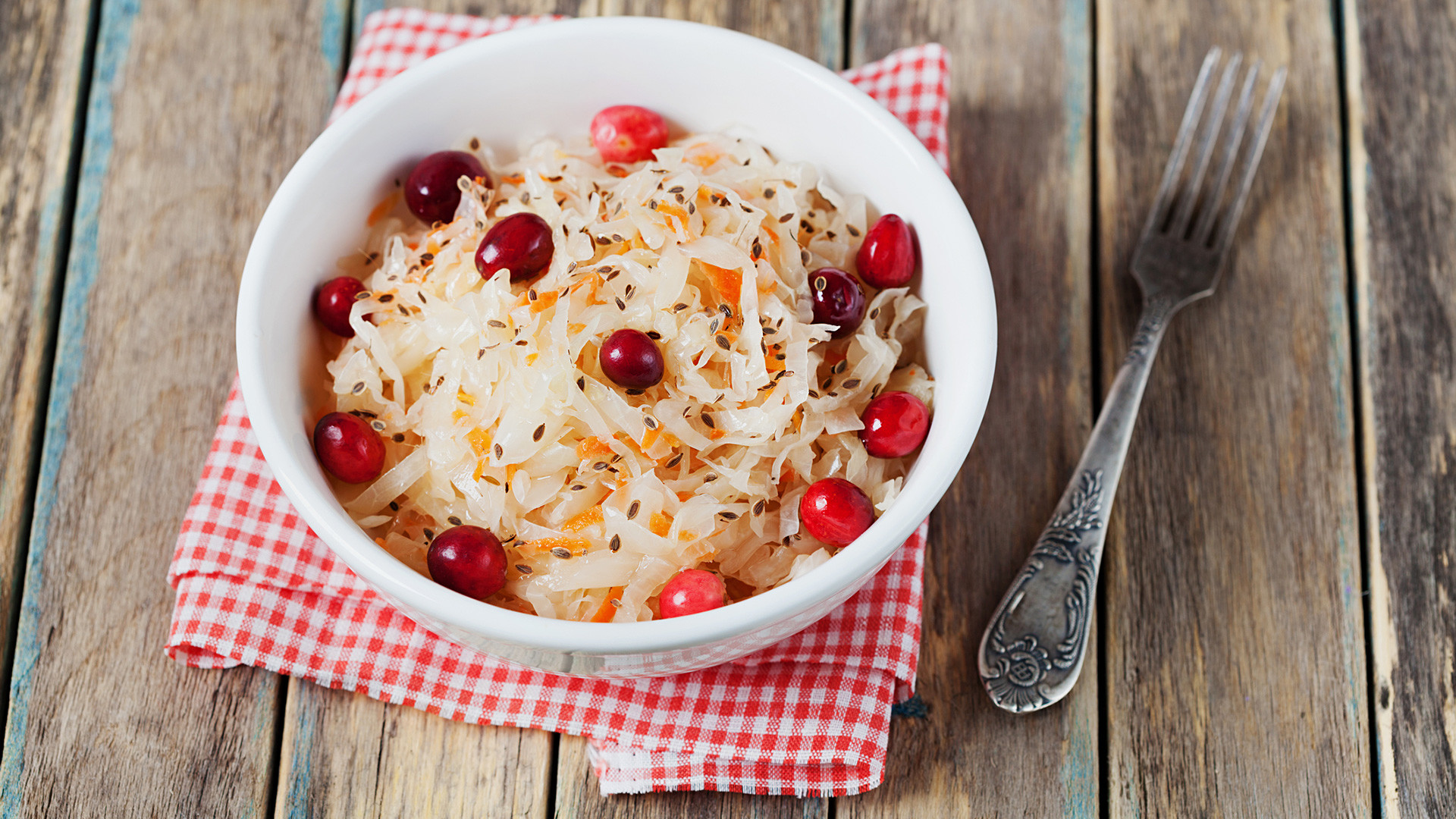
Russians have a long tradition of picking fruits and vegetables for the winter: When there were no refrigerators, the process of fermenting allowed food to be kept for a long time, saving all the nutrients. Today many nutritionists admit that probiotic foods improve digestion and boost immunity. Try these easy Russian recipes – and your stomach will say “Thank you!”
1. Cabbage
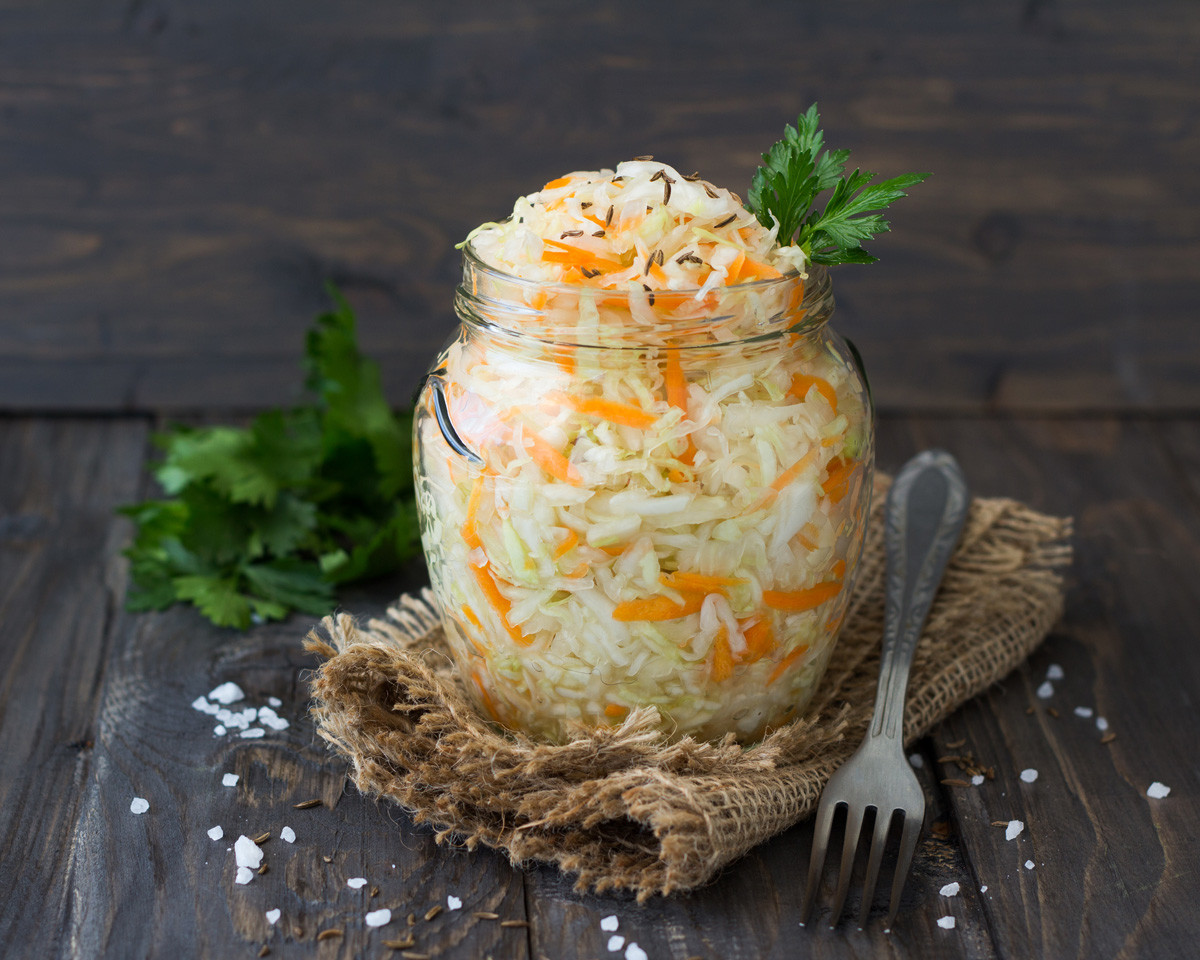
Sauerkraut is the fermented queen of the Russian table. You most likely know the legend about how sauerkraut saved sailors from the scurvy, thanks to its high vitamin C content. It’s also great for one’s immune system. Besides eating sauerkraut in salads, Russians prepare a traditional soup called shchi with it, and make solyanka and bigus.
Chop the cabbage head and coarsely grate one carrot. Mix the vegetables and add 1 tbsp of salt. You can also add cranberries. Tightly tamp into a jar or pan and leave for 3-4 days. The cabbage starts fermenting at a temperature of 20-21 C. Keep the sauerkraut in a fridge.
2. Cucumbers
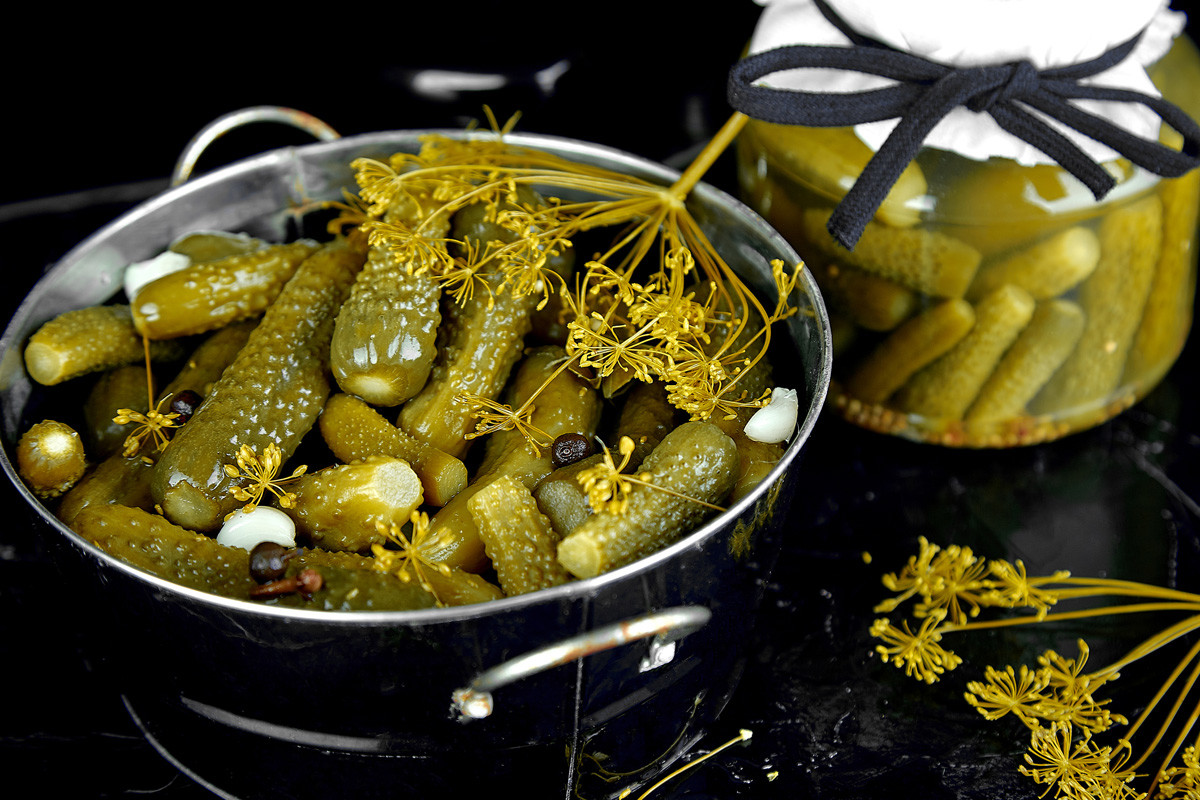
There are two ways to pickle cucumbers – with vinegar (“marinated”) and just with salt. Anyway, for pickling, it’s better to choose small cucumbers up to 10 cm long. Vegetables can be preserved in brine for up to a half year.
Soak 1 kg of cucumbers in cold water for two hours. Lay several leaves of blackcurrant and cherry on the bottom of jars, add 3-4 cloves of garlic and dill (optional). Then pack the cucumbers very tightly and add 1 tbsp of salt. Add cold boiled water and close the lid. Turn the jar upside down several times to dissolve the salt. Leave the jars in a cool place (not a refrigerator) for 2 weeks.
3. Tomatoes
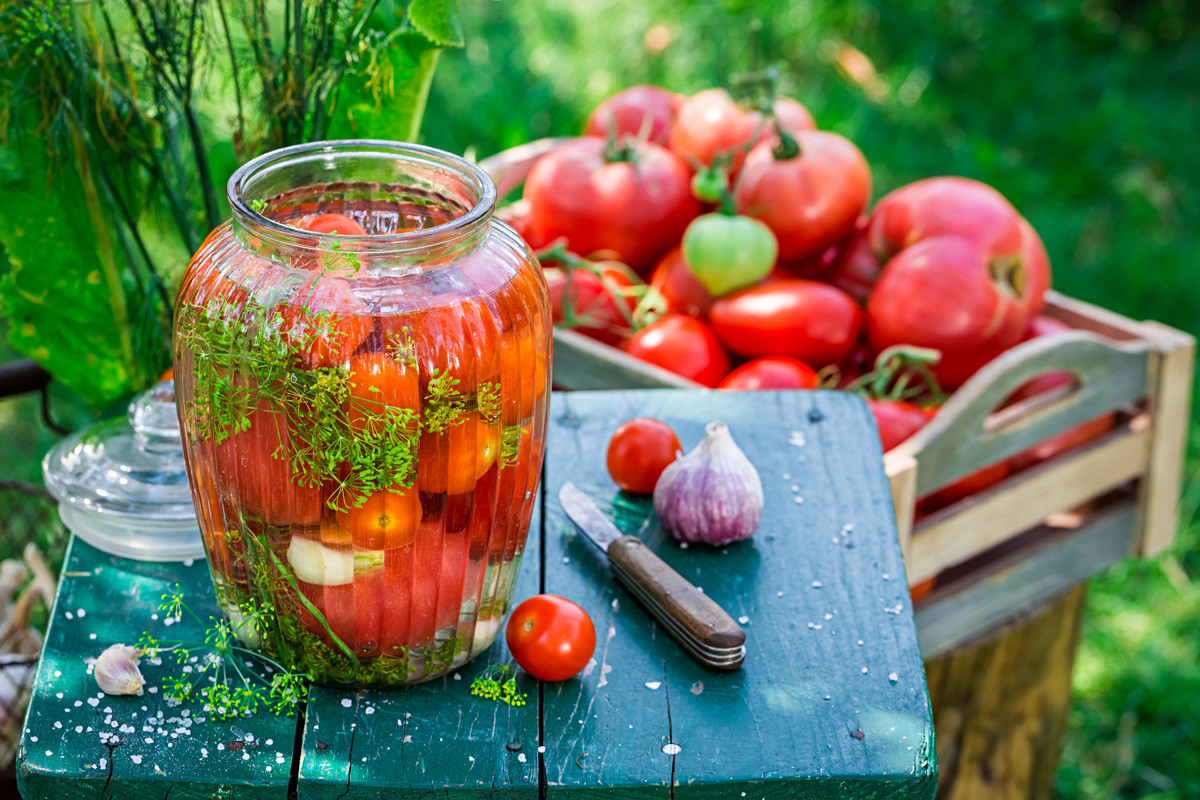
4. Garlic
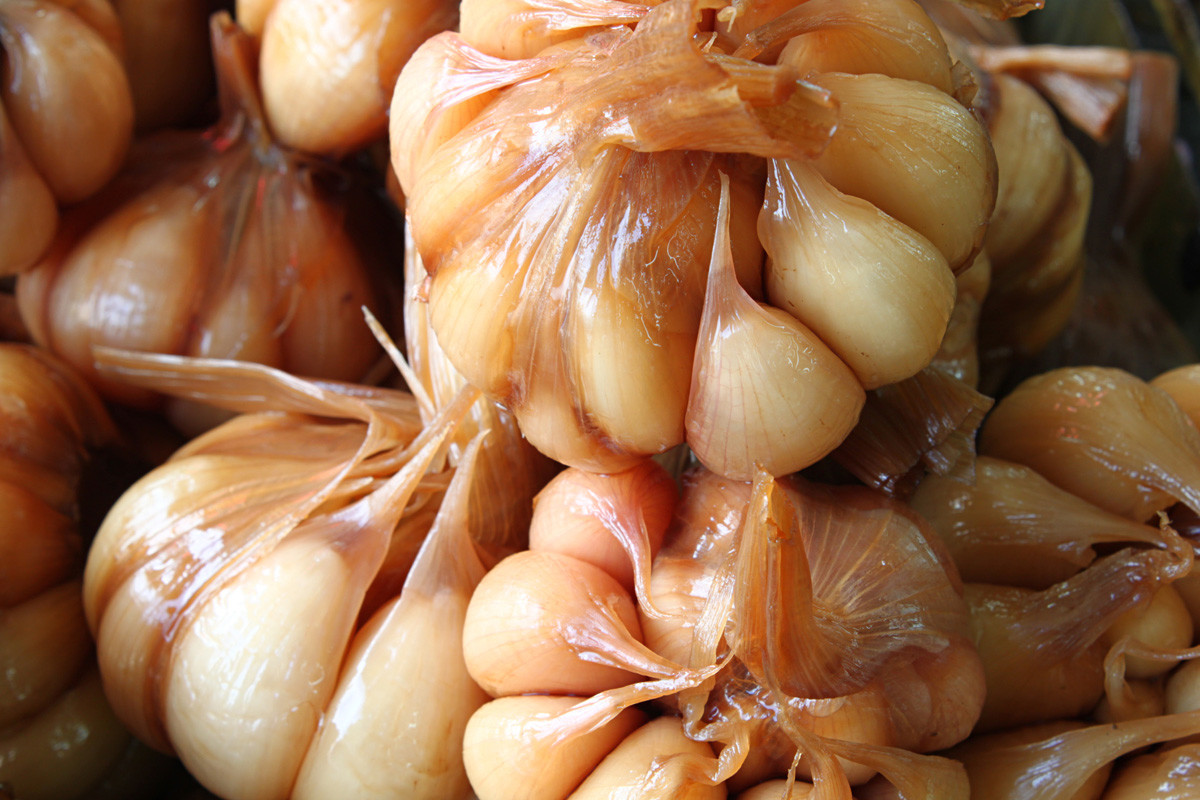
Garlic is undoubtedly super healthy, but only a bold person will eat it every day. However, marinated garlic is less pungent, so it won’t leave you will stinky breath.
Lay a few pepper seeds and bay leaves on the bottom of hot sterilized jars. Add the peeled garlic cloves. Pour the hot marinade (for 0.5 liter of water – 2 tbsp of vinegar, 1 tbsp of salt and sugar). Immediately tighten the lid and turn the jar upside down. Store in a dark dry place. The garlic will be ready in a week.
5. Apples
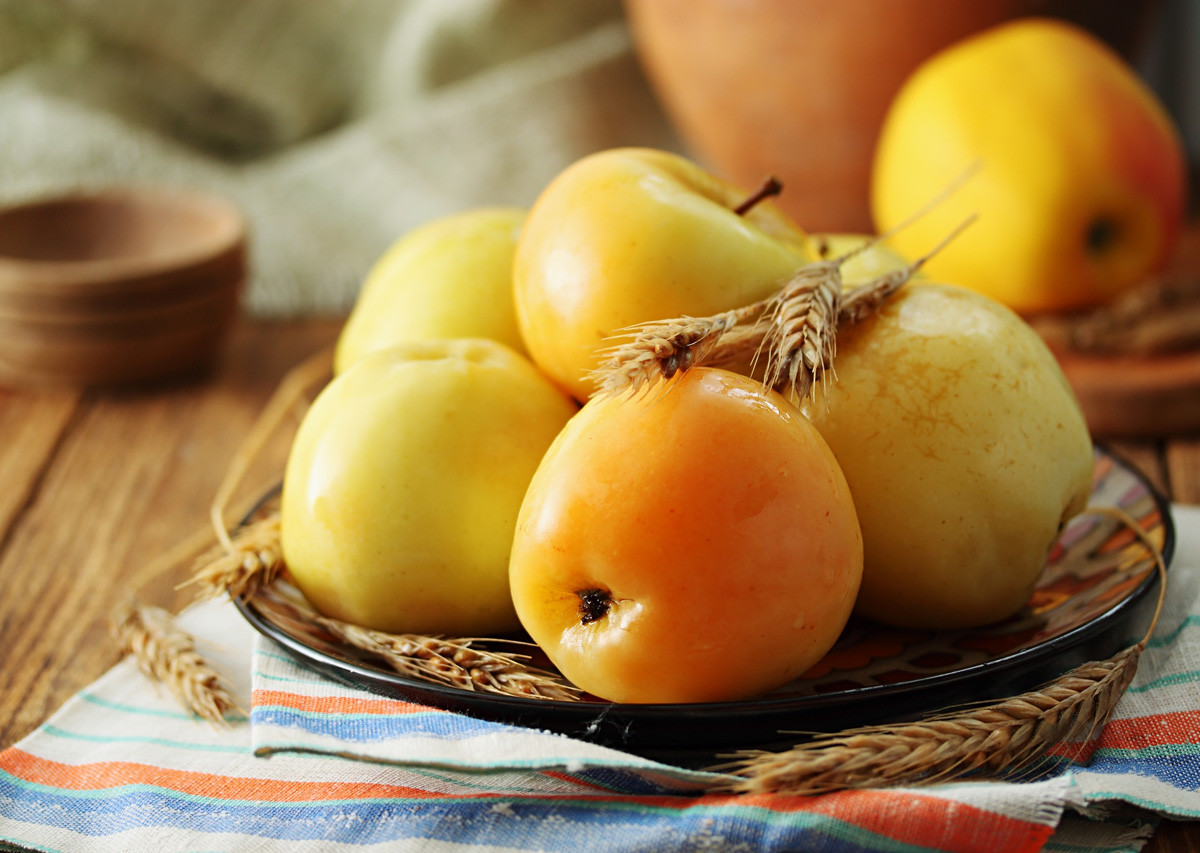
Russian poet Alexander Pushkin could not imagine his autumn dinners without pickled apples. This traditional Russian dish has a rather specific spicy taste. The best kind of apple for this recipe is called Antonovka – or use small green sour apples if you can’t find them
Lay a few blackcurrant and cherry leaves on the bottom of a jar, add whole fruits and pour in the cold boiled brine. Put a stone on top to keep the fruit packed. The fermentation process kicks off between 15-21 C. Your apples will be ready in 2-3 weeks.
6. Mushrooms
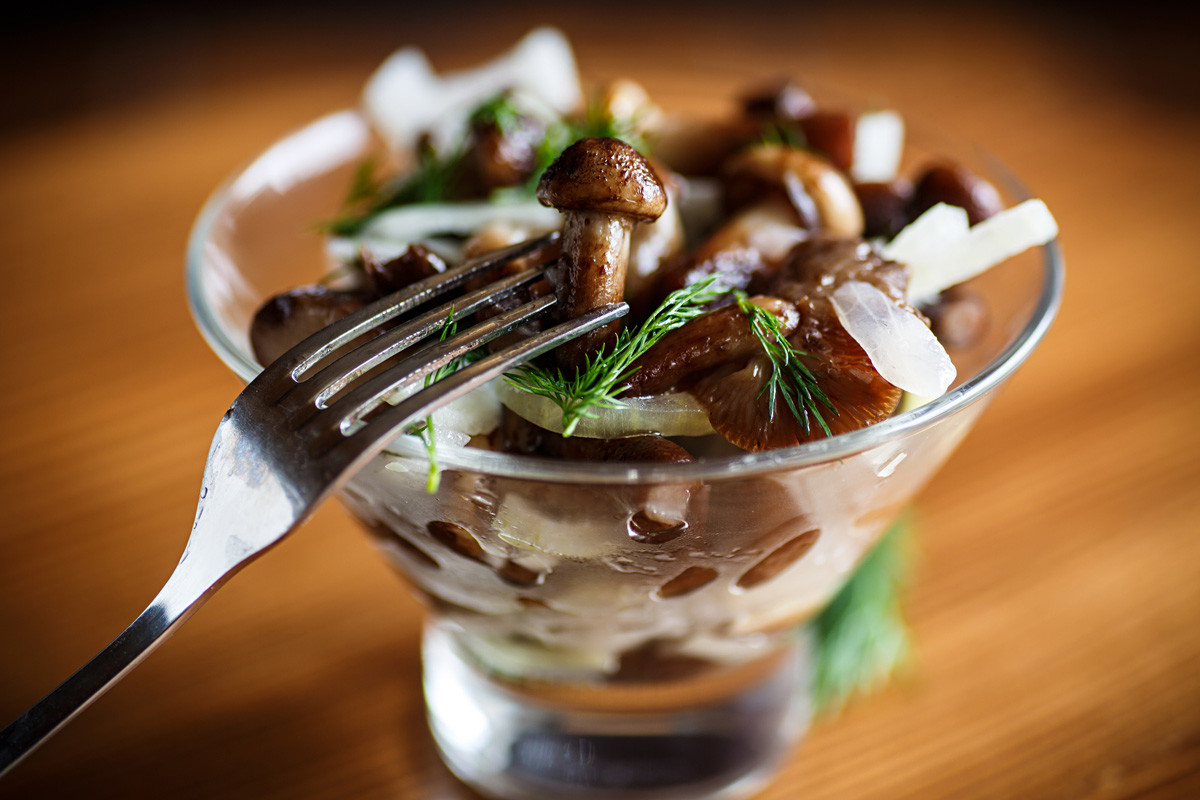
Do you like “silent hunting?” In Russian cuisine, there are a lot of tasty recipes from russules, white, and aspen mushrooms – they are boiled, fried, stuffed, and of course, pickled. One of the most popular kinds of pickled mushrooms are small chanterelles.
Boil the mushrooms until they sink to the bottom and then shift to another pan. Add salt, sugar, and pepper to the mushroom broth and bring to the boil. Add the mushrooms, pour 1 tbsp of vinegar and boil for 5 minutes. Put the mushrooms and marinade in jars and keep in a cool place. They will be ready in one month.
7. Eggplants
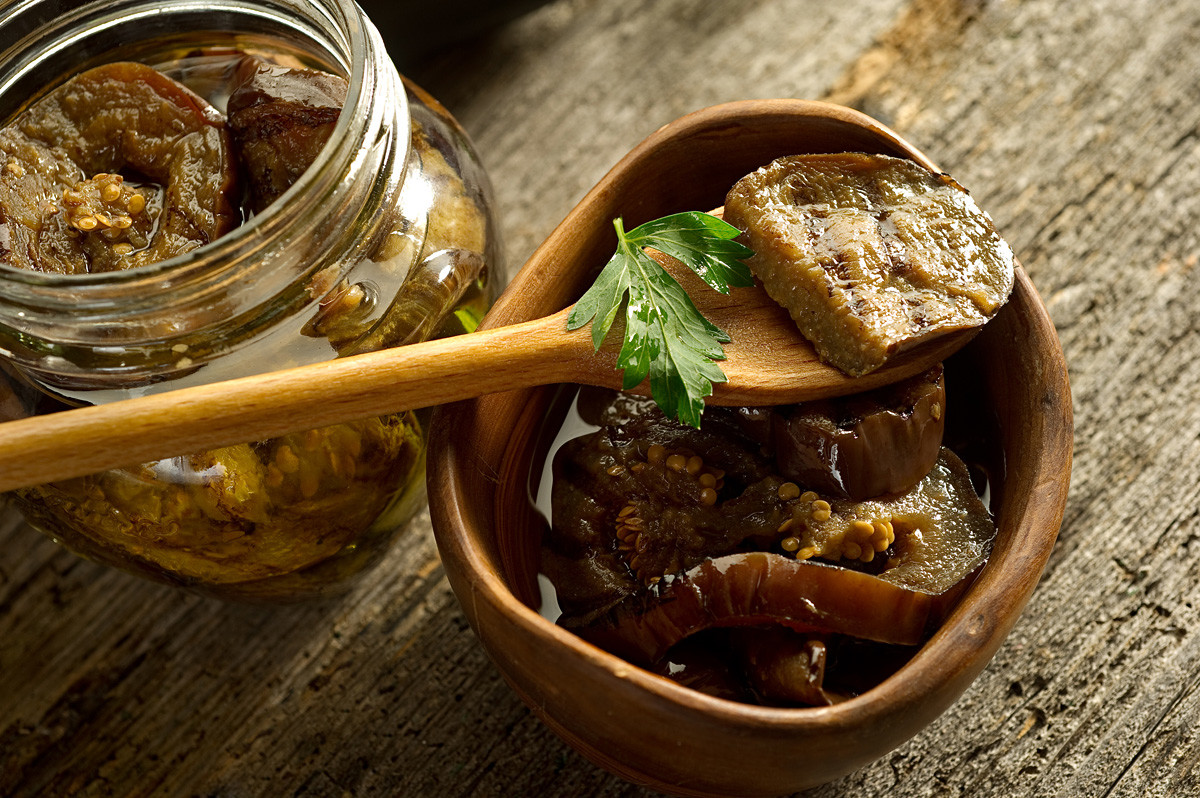
These tender and spicy vegetables can be pickled either sliced to pieces or in the form of caviar. You can add other vegetables when pickling: Popular eggplants comrades are carrots, bell peppers, and garlic. This appetizer is called “mother-in-law’s tongue.”
Cut the eggplant into slices and soak in salt water for 20 minutes. Grate a carrot and a chopped onion. Fry the eggplant, onions, and carrots in vegetable oil. Put everything in a jar and pour in the brine. Keep in a dark place. It will be ready in a week.
Do you know about the Russian fermented dairy food?
If using any of Russia Beyond's content, partly or in full, always provide an active hyperlink to the original material.
Subscribe
to our newsletter!
Get the week's best stories straight to your inbox